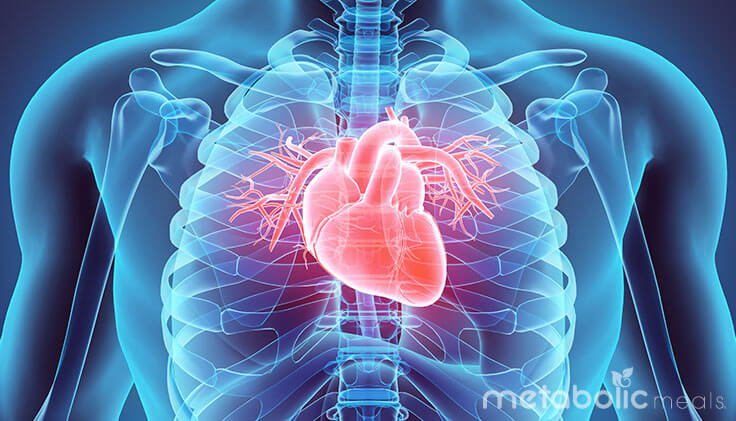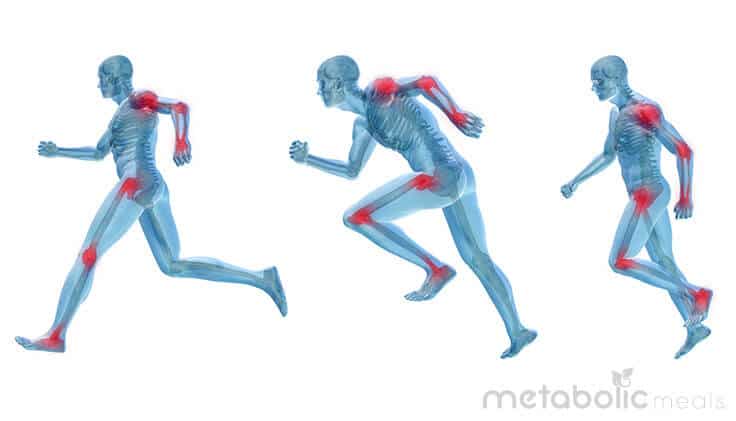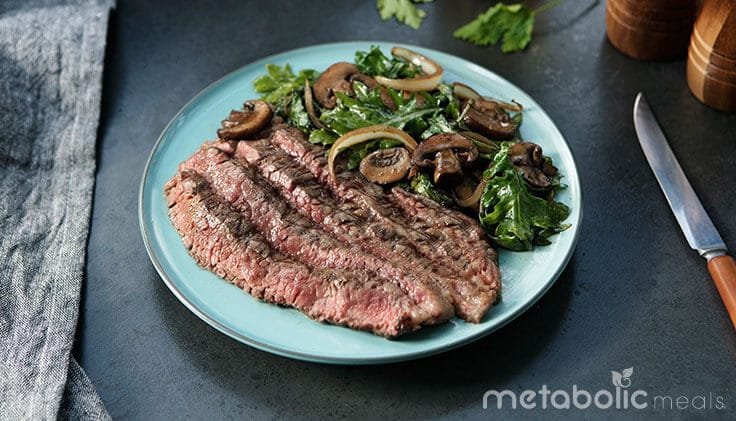ARTICLE AT A GLANCE
Eating a well-balanced diet is especially important for Baby Boomers. Failing to consume the proper nutrients puts older people at risk of developing age-related health conditions that can negatively impact longevity and quality of life. Nutrition plays a critical role in helping to stave off these conditions, but Boomers aren’t always mindful of getting enough variety in their diets. In this article, we’ll explore nutrition recommendations for common age-related concerns:
As we age into our 60s and 70s, we’re more likely to experience adverse health events. Everyone is different, but the most common concerns for Baby Boomers (people born between 1946 and 1964) are cardiovascular issues, brain health and cognitive decline, and loss of bone and muscle tissue.
All of these issues directly affect quality of life and independence — and each is intricately connected to nutrition. The following diet tips can help address some of these health concerns along with advice from your doctor and nutritionist.

We become more susceptible to cardiovascular system issues such as heart attacks and strokes as we grow older. Heart disease outranks cancer as the leading cause of death in the United States for both male and female Baby Boomers. Dietary habits and lifestyle can both increase or decrease the risk of heart disease.
For example, a diet that’s low to moderate in saturated fats, and extremely low in trans-fat and refined sugars can help reduce the risk of cardiovascular disease. The American Heart Association recommends eating foods that contain poly- or monounsaturated fats instead, like nuts, seeds, avocados, olive oil, and fatty fish. These “healthy fats” can have a beneficial effect on your heart when eaten in moderation. Eating plenty of high-fiber whole foods can also help lower cardiovascular risks.

Numerous studies have shown that nutritional intervention plays a significant role in reducing blood pressure and serum cholesterol in male and female Baby Boomers. In fact, lowering cholesterol by just 10% can reduce the risk of heart disease by up to 30%. Likewise, eating fiber helps keep cholesterol and blood pressure under control.

Neurodegenerative conditions such as Alzheimer’s disease and Dementia are among the most common brain and cognitive health issues. Alzheimer’s disease alone affects an estimated 5.5 million Baby Boomers in the United States, and more than 200,000 people younger than 65 exhibit symptoms of early-onset Alzheimer’s.
Healthy fats and fibrous fruits and vegetables can help slow cognitive decline. In a randomized clinical trial in Spain, three groups of adults followed a Mediterranean-style diet for four years – one group supplemented with olive oil, one used mixed nuts, and a control group was given advice on reducing dietary fats. In the follow-up, the groups who supplemented their nutrition with olive oil and nuts scored higher on cognitive tests than the control group that ate an unregulated low-fat diet.
Nutrient-dense berries rich in antioxidants and flavonoids can promote healthier brain cell function. We can also safeguard brain health with mono- and polyunsaturated fats, such as omega-3 fatty acids, by eating fatty fish like wild-caught salmon, mackerel, or sardines. In a 2014 New York University School of Medicine study, omega-3s, vitamins D and B12, folate, and beta carotene were all shown to help protect against Alzheimer’s disease.

A diet that includes a variety of leafy greens, cruciferous vegetables like broccoli and Brussels sprouts, and orange-colored produce such as carrots and sweet potatoes will help you get many of these micronutrients. Free-range eggs and pasture-raised meats are great sources of vitamin B12 and healthy fatty acids.

Longevity can be hindered by musculoskeletal problems. According to the World Health Organization, female Baby Boomers have a 30% to 40% risk of osteoporotic fractures, and male Baby Boomers have a 13% risk. Sarcopenia, or age-related skeletal muscle loss, can make us 2.3 times likelier to fracture a bone in a fall.
Without enough calcium and vitamin D, bones will grow weaker and more brittle with age. It’s important to consume enough calories and protein to maintain a healthy weight and preserve muscle mass. Not getting enough calories and protein can result in the loss of lean body mass, a combination of muscle, bone, and connective tissue. Resistance training is a great tool to help strengthen bones and ligaments while protecting lean muscle.
With age, our bodies become more resistant to a vital metabolic process called muscle protein synthesis — the process of building new muscle. While many Baby Boomers might not be focused on building new muscle, maintaining a balance of protein synthesis and protein breakdown is incredibly important for longevity and quality of life.
It’s important to distribute high-quality protein evenly across all meals to ensure our muscles are receiving the proper nutrients needed to maintain a healthy mass. On average, 20 to 30 grams of lean protein per meal will provide the correct nutrition. When cooked, that’s roughly the size of a deck of cards. It’s also important to consume three servings of calcium-rich foods and beverages every day, including dark leafy vegetables, fish, and vitamin D-fortified dairy.

One of the biggest factors in age-related health issues is micronutrient deficiencies becoming more common as our diets grow more limited. When we include a wide variety of fruits, vegetables, and lean meats in our diets — in essence, “eat the rainbow” — we have a better chance of meeting our daily nutritional needs and keeping some of these medical concerns at bay.






